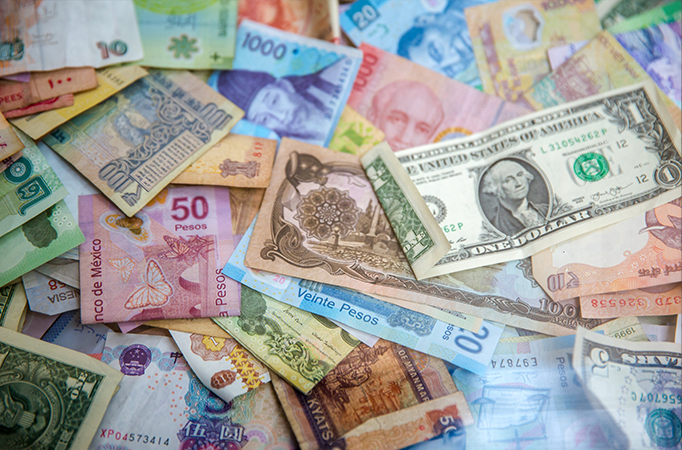
Morning Brief – Reserved about Dollars
Russian President Vladimir Putin has been taking a tough line on the Dollar. He has been claiming that western foreign policy, sharped in no small part by the United States, is to blame for the rising commodity and Dollar prices globally. Even citing recent IMF figures for the Dollarisation of global foreign exchange reserves, Putin appeared to take aim at the role of the Dollar as the kingpin of global reserves. Unsurprisingly given the European Union’s role in the sanctions levied on Russia following the invasion of Ukraine, the President focussed on the role of the Euro in those reserves too.
Putin’s argument was that in a post-pandemic post-invasion world, it was physical goods that are holding a value, not money. His rather archaic and feudal view of the global economic would see governments stockpile commodities, hard and soft hoarding everything from food to oil rather than money. Of course, this would serve the President’s own ends as a significant benefactor of global commodity export and with the Ruble as an incredibly small player in the global reserve market. The announcement was in no small part also motivated by the US’s confiscation of Russia’s reserves.
The discussion regarding the composition of foreign exchange reserves is often a debate that includes China at the centre of it. China is one of the world’s largest holders of US treasuries and US Dollars in its national reserves by volume. Frequently over recent decades it has been public about its dissatisfaction with the reliance upon US Dollars in global reserves. It was one of the catalysts behind the emerging trend to hold Euros in more significant volumes within reserves.
China’s Xi Jinping and Vladimir Putin will have something to talk about then when they meet for the first time following the invasion of Ukraine. Pressure has been applied to China as well as Russia from US foreign policy as of late. The two will meet later this month at the Shanghai Cooperation Organisation’s summit in Uzbekistan in one weeks’ time. This geopolitical alliance is one that markets will continue to keep an eye on not least just for the potential coordinated rhetoric/action on Dollar reserves but for its significance to global supply chains also.
Discussion and Analysis by Charles Porter

Click Here to Subscribe to the SGM-FX Newsletter
Related Insights

Daily Brief – (No) confidence neighbours
(No) confidence neighbours The vote of no confidence that brought Michel Barnier’s French parliament to the ground is only just in the rear-view mirror. Yesterday, Olaf Scholz’s coalition faced a similar vote paving the way to national elections in Germany. At the same time as we have been commenting upon the economic malaise that has […]

Daily Brief – British Pound
British Pound With GBP if not all at sea but wallowing against the crashing waves of USD strength, it is a tale of two cities for beleaguered Brits: GBP/USD dipping below the previous floor of 1.2600 but versus EUR GBP still looking firm due to the apparent divergence between the Federal Reserve and the European […]

Daily Brief – That’s going to leave a mark
That’s going to leave a mark Overnight the Federal Reserve published its latest monetary policy decision. The relentless appreciation of the Dollar lately has been driven by the combined narratives of a soft landing, US economic exceptionalism, the forthcoming Trump presidency and the belief the Fed may have to moderate its easing cycle accordingly. The […]



 Charles Porter
Charles Porter Humphrey Percy
Humphrey Percy